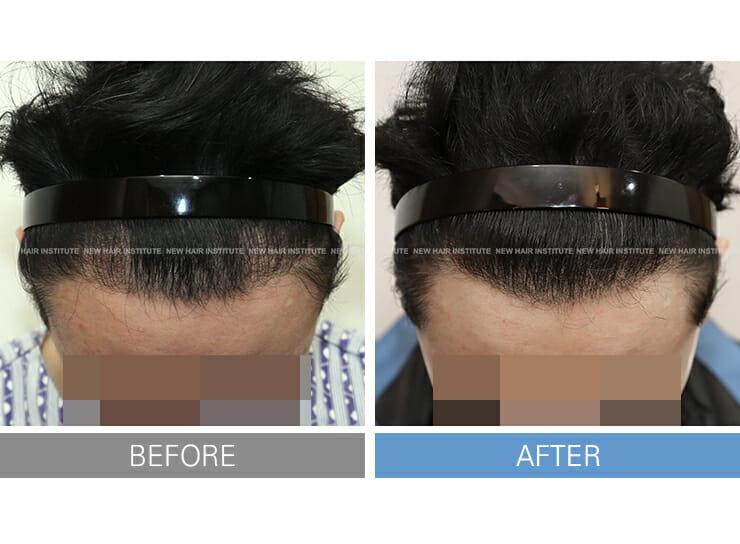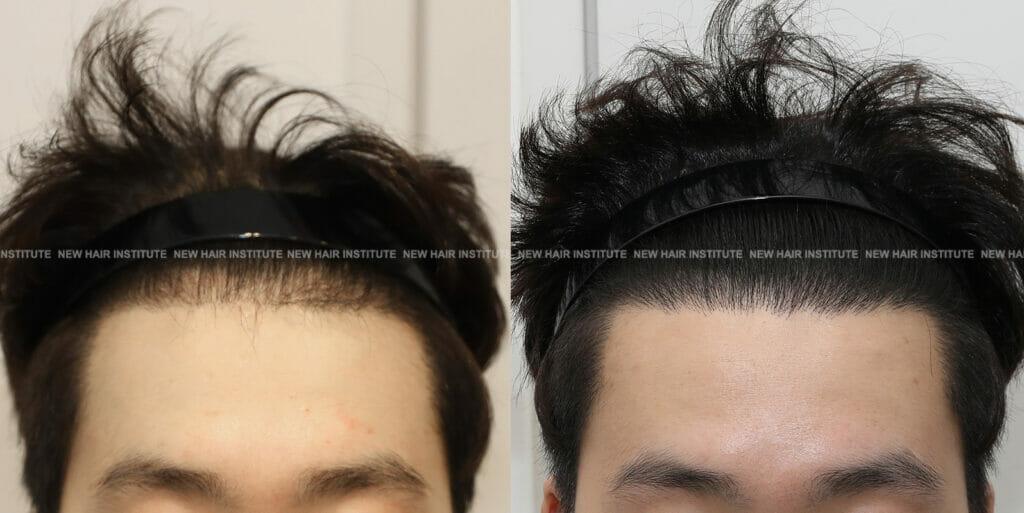ENG Hair Transplant | Top 5 Reasons Hair Transplants Fail
페이지 정보
작성자 admin 작성일23-05-03 16:34 조회349회 댓글0건본문
Top 5 Reasons Hair Transplants Fail
If you look around the internet, you'll see many examples of hair transplants failing. Why does this happen? There are many reasons why hair transplants fail. Some are related to the doctor performing the surgery, and some are patient-related factors. Let's take a look at the top 5 reasons why hair transplants fail. [caption id="attachment_147910" align="alignnone" width="740"] 타병원 1차 수술 후 본원 재수술 사례[/caption]
타병원 1차 수술 후 본원 재수술 사례[/caption]
Top 5 reasons why hair transplants fail
Although hair transplants have a high success rate, they can still fail. Hair transplant failure can be caused by a variety of factors, including graft rejection, hair transplant eligibility, unrealistic expectations, postoperative complications, and inexperienced clinics.1. Hair Transplant Rejection
Hair transplant rejection can occur in some patients, leading to an unsuccessful surgery and disappointing results. Lichen planus (LLP) is a type of primary scarring alopecia that can cause graft rejection. It is characterized by inflammation of the hair follicle, which results in the replacement of the follicle with scar tissue. It is important for patients with lichen planus to take into account the potential for their body to reject the graft before deciding to undergo a hair transplant procedure.2. Lack of donor hair
The outcome of your surgery is contingent upon both your overall health and the particular condition of your hair. A healthy and appropriate donor site is an indispensable prerequisite for successful hair transplantation. Overlooking the health of the graft and the age of the donor site can be a critical mistake during a hair transplant, as they directly affect the outcome of the procedure. If a graft from an unqualified donor or a hair graft taken from a different part of the body is used, the outcome may not be as expected, which can result in decreased hair viability and hair loss after hair transplant surgery.3. Unrealistic expectations
The specific condition of your hair plays a significant role in determining how successful your surgery will be. Understanding the limitations of your hair and managing your expectations can improve your chances of a satisfactory outcome. To make sure your hair transplant is successful, talk to your doctor about what you want and what you can expect. They can help you understand what's possible and what's not. Your doctor can provide valuable insight into what can realistically be achieved and caution you against setting unattainable goals. The expectation of high hair density can be deceptive if there is an insufficient amount of donor follicles present. [caption id="attachment_147906" align="alignnone" width="800"] (좌)낮은 헤어라인 밀도 / (우)높은 헤어라인 밀도[/caption]
(좌)낮은 헤어라인 밀도 / (우)높은 헤어라인 밀도[/caption]
4.Postoperative complications
Properly following your doctor's instructions after hair transplant surgery is crucial for a successful outcome. It is important to provide adequate care to the newly transplanted hair follicles, promote healing for both the donor and transplant sites, and minimize any potential damage to the hair follicles. It's not only medical professionals who can damage hair follicles during a transplant surgery; patients themselves can also cause harm. Therefore, it's crucial to be cautious and avoid pulling out grafts for the first 7-10 days following the procedure. Hair follicles may fall out right after surgery and may take up to 10 days to grow back. To avoid losing hair follicles, refrain from scratching or bumping the graft site for at least 10 days. It's best to avoid wearing tight hats or beanies right after surgery as they could cause problems with the graft site. To prevent hair loss and swelling after surgery, adjust your sleeping position to avoid friction at the transplant site and avoid applying pressure or traction for the first few weeks. Proper aftercare is crucial for optimal hair transplant results, so it's essential to steer clear of vigorous activity, alcohol consumption, hot or cold showers, and excessive sun exposure during the healing process.5.Inexperienced clinic
Hair transplant failure can also be the result of choosing the wrong clinic. Since hair transplantation is a very popular surgery, many clinics and surgeons have started offering it. However, not all of these clinics are experienced and professional enough to provide great hair transplant results. The lack of experience in some clinics can result in the extraction of incorrect donor grafts or excessive harvesting of the donor area, leading to suboptimal transplant outcomes and increased dropout rates. Ensuring the proper handling and storage of donor grafts during surgery is essential to prevent the negative effects of shock trauma and subsequent hair loss. Even if the doctor performs the surgery with the best technique and the patient takes proper care after the surgery, the grafting rate may not be high. There are unclear factors that are not caused by the doctor or the patient. The patient's constitution, growth characteristics, may contribute to poor growth. Patients who are prone to chronic inflammation may develop hypervascularization, etc. These unpredictable and unclear factors that hinder the engraftment of graft cells are collectively referred to as "factor X". This is why there is no 100% guarantee of hair transplant results, even if you have a skilled surgeon and take good care of yourself, unexpected results can occur.Written by.
Dr. Yong-Uk
↓click↓FUE or FUT hair transplant: Which is better for me?
What Precautions Taken After Hair Transplant? l shampoo, smoking and drinking alcohol ,exercise
↓contact us↓+82 (0)2 557 2022
kakaotalk댓글목록
등록된 댓글이 없습니다.





 회원가입
회원가입 로그인
로그인


 KOR
KOR

